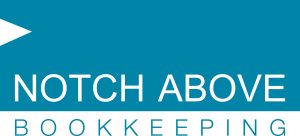Financial year-end can be a stressful time for small businesses that don’t have their bookkeeping in order. But it doesn’t have to be. Here’s what you need to get through it, and some tips on how to minimise the drama.
What is the Australian financial year?
The Australian financial year (also the Australian tax year) runs from 1 July to 30 June. At midnight on 30 June, your business books are closed for the year and you report your financial situation to the government. They use this information to figure out how much tax you owe.
Tax return due date
The tax season starts on 1 July (the day after the Australian financial year ends) and runs through till 31 October. You can submit your tax return at anytime during tax season.
In theory, this makes 31 October the final tax deadline, but there are exceptions. Businesses with tax agents have until 31 March the following year, for example. And there are other special circumstances. To find your precise due date, see what the ATO says about lodging your tax return.
Important items for Australian financial year end
To assess your business’s tax obligations, the government relies on a range of documents. The two most important are your:
- profit and loss (P&L) statement
- balance sheet
Profit and loss (P&L) statement
In its simplest form, a P&L statement shows your income (or revenue) in one column, and your expenses (or costs) in another. Expenses are subtracted from income to show how profitable the business is.
Creating a P&L statement can be intense because it needs to reflect all of your business transactions for the year, including:
- every sale, markup, and fee you charged, plus interest earned
- every dollar spent on things like supplies, rent, energy, payroll and loan repayments
P&L statements can also be complex because costs include things like depreciation of assets.
Simplifying P&L statements for end of financial year
Your accountant needs a really comprehensive and accurate record of transactions to get P&L statements right for you. You can help them by:
- using only business bank accounts to pay business bills
- getting online accounting software that retrieves transaction data straight from your bank
- staying on top of bank reconciliation so income and expenses are correctly classified
Balance sheet
A balance sheet summarises your assets and liabilities. Assets are things the business owns, like worktools, vehicles, and cash in the bank. An invoice that you’ve sent but which hasn’t yet been paid is also an asset. Liabilities include debts and bills that you’ve received but haven’t yet paid.
Figuring out your assets and liabilities can be tricky if you don’t know:
- which invoices have or haven’t been fully paid
- exactly how much money you owe to suppliers and lenders
Simplifying your balance sheet for end of financial year
It’s best to stay on top of your assets and liabilities throughout the year, rather than trying to catch up at financial year end.
Record new assets as soon as they come into the business, so nothing’s forgotten.
Make sure you record bills as soon as they’re received (not just when you pay them).
Use invoicing software that shows what has and hasn’t been paid.
You may need to do a stocktake
Unused inventory needs to be declared as an asset. You’ll need to count what you have and assign a value to each item.
If you carry a lot of inventory, consider getting an app to keep track of it. An inventory app allows you to record inventory as you buy it. It’ll also sync with your sales system, so items are subtracted from your inventory as they’re sold. Find out what inventory management software can do for your business.
Complete your tax paperwork
Once you’ve got the numbers together, you’re ready to lodge business tax returns. You’ll have more obligations if you have employees.
For employees:
- Produce payment summaries.
You need to formally document the amount you paid each employee, and how much tax you paid on their behalf. Learn more about payment summaries.
- Pay super:
You need to make super contributions on behalf of all employees, including casual staff. Make sure you’re meeting your commitments with this ATO checklist.
- Work out fringe benefits tax.
Non-cash benefits that you provide to your employees (such as a car) are taxed. You must pay it on your employee’s behalf. Learn more about fringe benefits tax.
For the business:
- Fill out a business income return.
Declare how much profit the business earned. Do this even if you made pay-as-you-go instalment payments throughout the year. Learn more about business income returns.
- Claim your deductions.
Some business expenses can be deducted from your taxable income. Check out the Australian Tax Office guidelines.
- GST (for registered businesses).
Declare how much GST you collected and paid throughout the year. You can do an annual return, or pay quarterly and submit an annual report.
Underpaying tax can get you in legal trouble. Overpaying just doesn’t make sense. You need a lot of knowledge to get the balance right. Get a tax agent to help you but make sure they’re registered with the Tax Practitioners Board. You are personally responsible for everything that’s included in your return so it’s not worth taking a risk.
Simplifying tax
Tax is all about record-keeping. You need to account for every dollar that comes into, or goes out of your business. And you should have documents such as receipts and invoices to back up those records. Try to avoid doing this work manually as it will take a heap of time, which will make the end of financial year really stressful. Manual entry also leaves a lot of room for human error:
- Use software to record business transactions automatically.
- Get accounting and payroll software that calculates GST and income taxes as you go.
- Photograph paper receipts – an app like Receipt Bank will create a digital record for you.
Health check your business
You may dread the end of financial year but there are a lot of upsides. For many businesses, it’s the only time of the year that they have a complete set of accounts, meaning they can see:
- how much money they’re making – and where it’s coming from
- how much money they’re spending – and where it’s going
- where the risks are in their business
It’s an ideal time to make strategic decisions that could save money, boost revenue, and make the business more profitable. It’s also a good time to check that the business has the right legal structure, and that it’s adequately insured.
How to have a better end of financial year
For the new financial year, try to set up systems that:
- limit the amount of work you have to do at tax time
- give you a running report of business performance (so you don’t have to wait till this time next year to find out how you’re doing)
- create an automatic audit trail
Online accounting software automates data entry, so your books are always up to date. That’s great for end of financial year and the tax season, but it also means you can create a P&L statement or a balance sheet whenever you like – not just at tax time. And because you’ll have digital records of everything, there’s no need to fear an audit.
Also, ask your accountant to come up with a tax plan for the new year. They’re in a much better position to lower your tax bill if they can put a 12-month strategy in place.
Free Bookkeeping Systems Check-Up
Take our quick quiz to find out how to get more cash and time back in your life.
Start the Quiz
Specialising in Xero bookkeeping, Notch Above is a Brisbane bookkeeper and BAS Agent located in Alderley that offers Xero setup, as well as training and ongoing support. Notch Above can take care of all the bookkeeping tasks you would rather not do, like bank reconciliations, supplier payments, payroll services, debtor control and BAS returns.
Like us now on Facebook
Follow us now on Twitter
Connect with me on LinkedIn
Visit our Website
Article source: https://www.xero.com/au/resources/small-business-guides/accounting/demystifying-end-of-financial-year/









